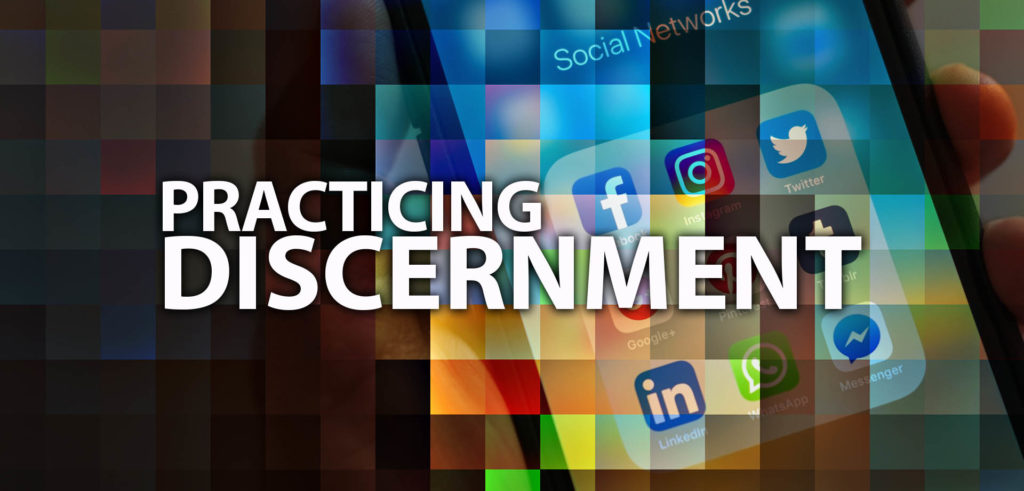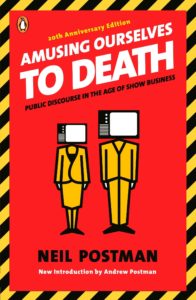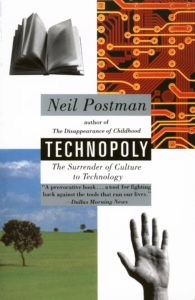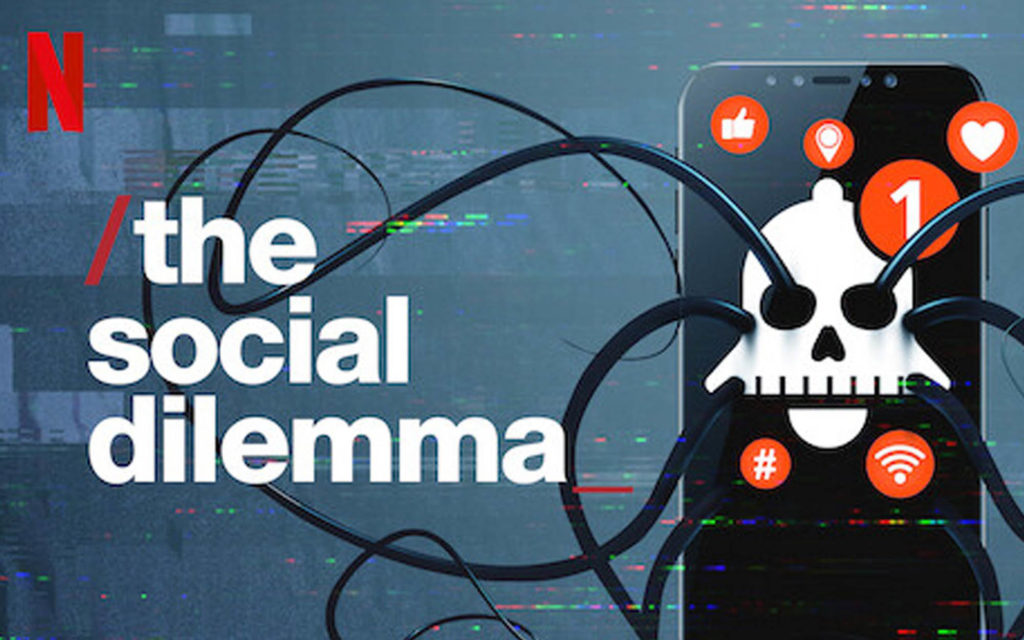Practicing Discernment

But understand this, that in the last days difficult times will come…
Evil people and impostors will become worse,
deceiving and being deceived.”
– 2 Timothy 3:1, 13 –
Manipulation and deception have been part of the human story since the very beginning. Now the technologies that are shaping our culture make it easier than ever for smaller groups of people to influence and move much larger groups of people into deeper lies and deception. As people of the Truth who root our lives in Christ, we need to be AWARE of who is really speaking to us and where they are leading us.
Last year, I posted an article by Ed Stetzer entitled “On Christians Spreading Corona Conspiracies: Gullibility is not a Spiritual Gift.” There, Stetzer addressed the issue that Christians “seem to be disproportionately fooled by conspiracy theories.” He also gave some advice as to how we might counter the spread of untrue, deceptive information. In tune with these ideas, Stetzer wrote another piece on “Why Sharing Fake News Makes Us Look Stupid” in which he calls Christians to stand for the Truth and not be tempted to share “fake” news that harms our integrity as people of Truth. If you have not read these articles, I would highly recommend them.
In both of these articles, Stetzer encourages Christians to practice discernment as we are dealing with the barrage of information that hits us on a daily basis. Yet as I see Christians continuing to propagate “news,” ideas, and theories that have no basis in reality, it becomes clear that these problems are deeper than we may want to admit.
The Technological Powers That Be
Before we go any further, I want to mention two resources that have come up quite a bit lately that set the stage for understanding what is happening in our times.
In 1985 Neil Postman released his classic book Amusing Ourselves to Death which both foresaw and warned us about the many dangers and threats that would come with our developing video culture. Postman begins by contrasting George Orwell’s view of the future in 1984 with that of Aldous Huxley in Brave New World. His analysis hits a little too close to home:
“Orwell warns that we will be overcome by an externally imposed oppression. But in Huxley’s vision, no Big Brother is required to deprive people of their autonomy, maturity and history. As he saw it, people will come to love their oppression, to adore the technologies that undo their capacities to think.”
– Neil Postman, Amusing Ourselves to Death
Postman goes on to argue that Huxley was right and Orwell was wrong. There can be little doubt now that Postman hit the proverbial nail on the head. The technologies that we now gleefully carry around with us numb us to reality and seriously impede our culture’s ability to think logically and rationally.
Both Amusing Ourselves to Death and Technopoly: The Surrender of Culture to Technology by Postman are essential texts that could help us navigate our treacherous times if only people would read them.


In line with Postman’s many warnings, The Social Dilemma is a documentary which states the issue clearly: “Never before have a handful of tech designers had such control over the way billions of us think, act, and live our lives.”
Tristan Harris – one of the main contributors and president of The Center for Humane Technology said that this work was only continuing what Postman had started. Harris has “spent his career studying how today’s major technology platforms have increasingly become the social fabric by which we live and think, wielding dangerous power over our ability to make sense of the world.“
It goes beyond the scope of this article to touch on all that is addressed in The Social Dilemma. The core reality, however, is that all of the free technology that is being given to us means that WE ARE THE PRODUCT THAT IS BEING SOLD. More specifically, our attention is what is being sold. This documentary highlights how the business strategy of social media is eroding our democracy, mental health, and unity as a people.
The technology that CONNECTS us also
CONTROLS us
MANIPULATES us
POLARIZES us
DIVIDES us
DISTRACTS us
MONETIZES us
– thesocialdilemma.com
If you are engaged in social media – Facebook, Twitter, Instagram, etc – or even if you use Google as a search engine, you should watch The Social Dilemma. Also, the Podcast Your Undivided Attention from the Center for Humane Technology takes a deeper dive into many of the topics that make up the fabric The Social Dilemma.
Our present culture is involved (whether you are aware of it or not) in one of the largest psychological, social experiments of all time. Even if you are not directly participating in these online technologies, you are being affected by their influence. And if Postman, Harris and the other voices who are trying to wake us up to what is going on around us are right, these technologies pose an incredible threat to our liberty and autonomy.
There are now powerful, deceptive forces at work in our culture; pretending that they don’t exist or that we cannot do anything about them is not a viable option.
“… it is much later in the game now, and ignorance of the score is inexcusable. To be unaware that a technology comes equipped with a program for social change, to maintain that technology is neutral, to make the assumption that technology is always a friend to culture is, at this late hour, stupidity plain and simple.”
– Neil Postman, Amusing Ourselves to Death
Skilled in The Word – Discerning in the World
Hebrews 5:11–14
About this we have much to say, and it is hard to explain, since you have become dull of hearing. 12 For though by this time you ought to be teachers, you need someone to teach you again the basic principles of the oracles of God. You need milk, not solid food, 13 for everyone who lives on milk is unskilled in the word of righteousness, since he is a child. 14 But solid food is for the mature, for those who have their powers of discernment trained by constant practice to distinguish good from evil.
Over the past several years, I have been continually disheartened and alarmed at the number of Christians and “people who should know better” being sucked in and snookered by the endless supply of charlatans, quacks and deceivers that are readily available online. Just this year, I have been sent numerous videos or resources to “check out.” Most can be verified as false teaching, “fake news” or illogical, inane conspiracy theories with a minimal amount of investigation.
“… God has not called us to be easily fooled. Gullibility is not a Christian virtue. Believing and sharing conspiracies does not honor the Lord. It may make you feel better, like you are in the know, but it can end up harming others and it can hurt your witness.”
– Ed Stetzer –
As followers of Christ, we are called to be wise and discerning. We should be able to distinguish between what is true vs. the lie, what good vs. evil. Sadly, because we often only teach our people what to think and not HOW to think, it seems that we have many who are “tossed back and forth by waves and carried about by every wind of teaching by the trickery of people who craftily carry out their deceitful schemes” (Ephesians 4:14).
The lack of discernment and illogical thinking that is being evidenced in a growing number of those who claim to be Christians is alarming and discouraging. But, we can address these issues and “grow up into Christ” if we are willing.
There is the key statement: IF we are willing.
Many will continue to propagate the unreal and untrue claims of the deceivers simply because they want to do so, because the deceivers are “on their side.” It is always vital to deal with the reality that most often we believe what we believe because we want to believe it, whether it is true or not. This is a trap. But knowing there is a trap is the first step in avoiding it.
“People hate the truth for the sake of whatever it is that they love more than the truth. They love truth when it shines warmly on them, and hate it when it rebukes them.”
– Augustine of Hippo
The Hebrews 5 passage above addresses the lack of maturity in the congregation. Although this group has had enough time to have grown in maturity, they remain spiritually and intellectually immature – “babies in Christ.” There are several issues raised in this passage that are relevant to our discussion.
First, notice that the writer of Hebrews has much to say but the people are not ready to hear it because they have become “dull in hearing.” The idiom he uses here is “lazy in the ears.” Laziness, in its many forms, is not a key virtue you will find in Scriptures. It is something we all fall into by default. Growing in Christ and learning wisdom and discernment is often hard work, at the very least work in which we engage willingly and perseveringly. The Scriptures compare the search for wisdom to mining for precious metals and stones (see Proverbs 2:4; Job 28). The last time I checked, mining is not easy work.
I believe I am not mistaken in saying that Christianity is a demanding and serious religion. When it is delivered as easy and amusing, it is another kind of religion altogether.”
– Neil Postman, Amusing Ourselves to Death
To hear those who are wiser than us and who can lead us in the way of wisdom and discernment we cannot be lazy – sluggish in hearing.
Secondly, notice that Hebrews says “everyone who lives on milk is unskilled in the word of righteousness.” What is this “word of righteousness”? A little earlier, Hebrews spoke of the word of God which “is living and active, sharper than any two-edged sword, piercing to the division of soul and of spirit, of joints and of marrow, and discerning the thoughts and intentions of the heart” (Hebrews 4:12). It is clear that this Word is the Word of God – the Truth that comes to us in the Written Word and the Living Word of our Lord Jesus. This Word defines reality.
In order to have wisdom and discernment, need to be “skilled in the Word” – know what the Word says and know how to use it. The Scriptures are a source of knowledge and wisdom that has stood the test of time and has endured all previous existential threats, transcending both time and culture. Biblical literacy—knowing God’s Word—is at the heart of all that we teach and do at TSF. The Word is the foundation for all true knowledge and wisdom.
The more we know the truth, the more the deceivers will be obvious to us. There is an old illustration, story that has been recycled countless times that basically says, “You don’t learn to spot counterfeit money by studying counterfeits; you learn to spot the fakes by studying real money.” (Tim Challies has a great article confirming the truth at the heart of this story. Read it here.) The more we hear the Truth in the Word, the more we are sensitized to what it sounds and looks like. This makes us sensitive to all the deceivers and imposters who would lead us away from reality and truth.
Finally, as we learn the Word and become sensitized to Truth, we are able to practice discernment. Take note of this sentence: “But solid food is for the mature, for those who have their powers of discernment trained by constant practice to distinguish good from evil” (Hebrews 5:14). Solid food – heavier ideas, deeper truths – can only be “digested” by those who are spiritually and mentally mature. As mature people, we are exercising, training our powers of discernment by constant practice – putting these faculties into use all the time. In a future post, we will explore how to practice these powers of discernment in more depth.
Back to Basics
I saw a man pursuing the horizon;
Round and round they sped.
I was disturbed at this;
I accosted the man.
“It is futile,” I said, “You can never —”
“You lie,” he cried, And ran on.
– Stephen Crane, The Black Riders and Other Lines
If you have ever tried to reason with someone who has bought into any of the current conspiracy theories or fake news, you know what the speaker in the poem above feels like. A multitude of voices now warn that western culture is being rapidly undermined through the technologies to which so many are addicted. The real conspiracy is usually hidden in plain sight.
As we follow Christ and interact with our culture, we should be able to distinguish between what is good vs. what is evil; what is true vs. what is lie. With “constant practice” we can learn to do these things, If we are willing. And we have to be willing to follow the TRUTH wherever it leads, whether we like it or not.

